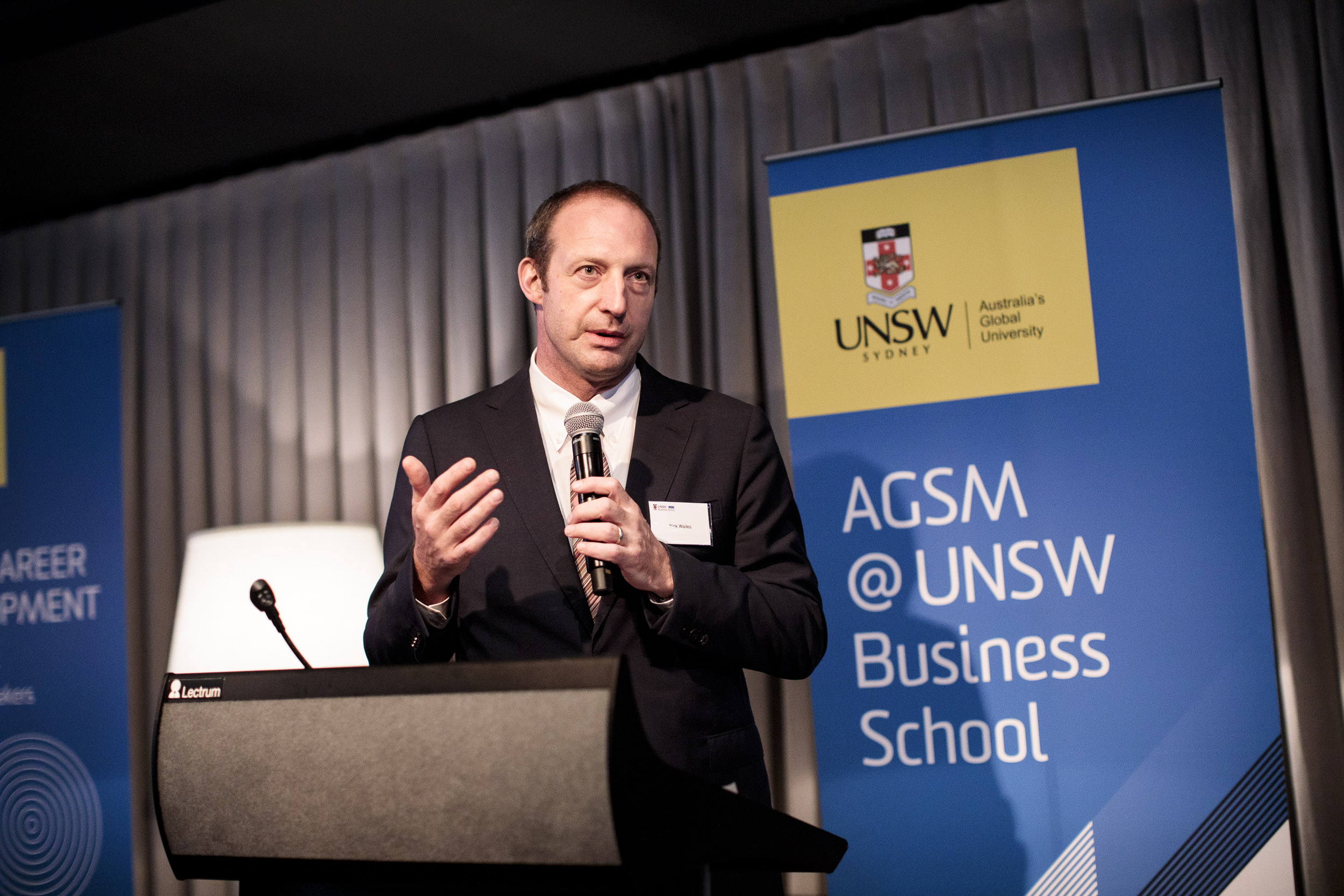The Online MBA That Has Students Flocking To Meet Each Other
Building a new generation digital MBA from the ground up – one that prepares students for the business of tomorrow, not just today – was always going to throw up some surprises.
For QUT MBA Director Associate Professor Glen Murphy there has been one stand out from the first cohort of the university’s ground-breaking QUT Digital MBA.
“The students’ enthusiasm for making the time and energy for face-to-face interactions, in what is essentially an online course, has been the biggest learning for us in the first year,” he said.
“It’s counterintuitive that students that seek out an online MBA program are so driven to meet their lecturers and fellow students.”

The QUT Digital MBA comprises 12 separate, 10-week units which can all be completed in as little as two years. It is delivered entirely online and facilitated by a teaching team of academic experts, business coaches and personal engagement coaches.
Each 10-week long unit begins with an optional two-day weekend intensive workshop, or ‘calibration session’, hosted at QUT’s Executive Education Centre in the Brisbane CBD. These sessions allow students to explore the unit content and establish or reinforce cohort and QUT staff connections.
“While it is an online program, we wanted to give students the opportunity to meet face-to-face with their fellow students and kick-start the use of the online tools that facilitate interaction throughout each course,” he said.
“We had hoped to get a good number along to each of the intensives but have been getting well over 90% and close to 100% for some of the courses.”
READ MORE: QUT UNVEILS NEW DIGITAL MBA
“It has grown from a simple introductory meeting, to a critical part of the overall program and we are continuing to evolve the experience to make it foundational to the whole cohort experience.”
There is no curriculum component attached to the intensives which has allowed QUT to offer diverse experiences to each group.
Students attending the intensives can now expect to hear from high quality guest speakers, undertake some career planning or have the opportunity to get up close and personal with the business school’s VR goggles and other learning simulations. There is also plenty of opportunity for socialising and networking with other members of QUT’s broader MBA community.
A Program for Industry 4.0
The QUT Digital MBA was officially launched in late 2018 with the first cohort of students starting in early 2019 and now approaching the halfway mark of their degrees. The program is offered in addition to QUT’s existing triple-accredited traditional on-campus MBA and its highly ranked Executive MBA (EMBA).
The AMBA-accredited program has been specifically designed to enhance students’ capability to lead in an industry 4.0 context.
The fourth industrial revolution, also known as Industry 4.0, is affecting almost every industry worldwide. It is rapidly transforming how businesses operate. Current trends include:
• advanced automation and robotics (including collaborative robots or ‘cobots’)
• machine-to-machine and human-to-machine communication
• artificial intelligence and machine learning
• sensor technology and data analytics
Associate Professor Murphy said emerging digital business models presented an array of potential opportunities and risks for future business leaders. This is one of the reasons for the exclusive five-year relationship that the QUT MBA program signed with Boston’s MIT Sloan School of Management.
“Without sufficient awareness or understanding of the nascent changes in ‘digital’ and ‘data’ strategic platforms, decision makers limit their organisations’ ability to achieve a sustainable competitive advantage and to continue delivering stakeholder value,” he said.
“A future-focused MBA must provide learners with the ability to integrate emerging digital and engineering innovations (digital business models, autonomous technologies, data analytics) into their organisations and take advantage of emerging opportunities and mitigating against disruptive elements – and our Digital MBA is designed to do just that.”
In September, more than 50 students from QUT’s MBA suite of programs will fly to Boston for the first two-week “MIT Immersion” tour, interacting with MIT faculty and alumni with a focus on Leadership, Entrepreneurship and Digital Transformation. Six of the Digital MBA cohort will be part of this revolutionary educational experience.
Digital Research & Industry Link
Another key element of the QUT Digital MBA design and positioning is its strategic partnership with QUT’s Centre for Digital Economy (CDE) and the newly established Centre for Future Enterprise.
Both institutions are leading-edge research centres established to investigate and reimagine organisational approaches to competing in the digital economy.
The relationship allows the MBA team to integrate of CDE research outputs into the curriculum design and delivery and utilise CDE academic talent as expert facilitators.
Importantly the innovative phenomenological curriculum design allows the CDE’s latest cutting-edge research into leading digital organisations to be directly integrated into the Digital MBA’s learning activities as they emerge.
Beating Lonely Learning
Along with the highly popular pre-course weekend intensives, QUT has developed a range of initiatives designed to overcome the biggest weaknesses of online content delivery: learner isolation and reduced engagement.
QUT’s approach to keeping students actively engaged throughout the course comprises a range of synchronous and asynchronous on-line instructional methods as well active facilitation of the cohort interaction through technologies like WhatsApp and Microsoft teams.
The online learning component comprises weekly webinars as well as scaffolded, self‐directed components utilising resources such as high quality pre‐recorded and curated video and other multimedia content, academic readings with reflective questions and online discussions, quizzes, and interactive exercises.
“The learning is supported through the use of synchronous virtual classrooms using the Zoom video conference technology, where participants engage in scheduled active discussions regularly,” he said.
Prospective students are encouraged to contact Tim Burton on + 61 7 3138 7731 or tim.burton@qut.edu.au





